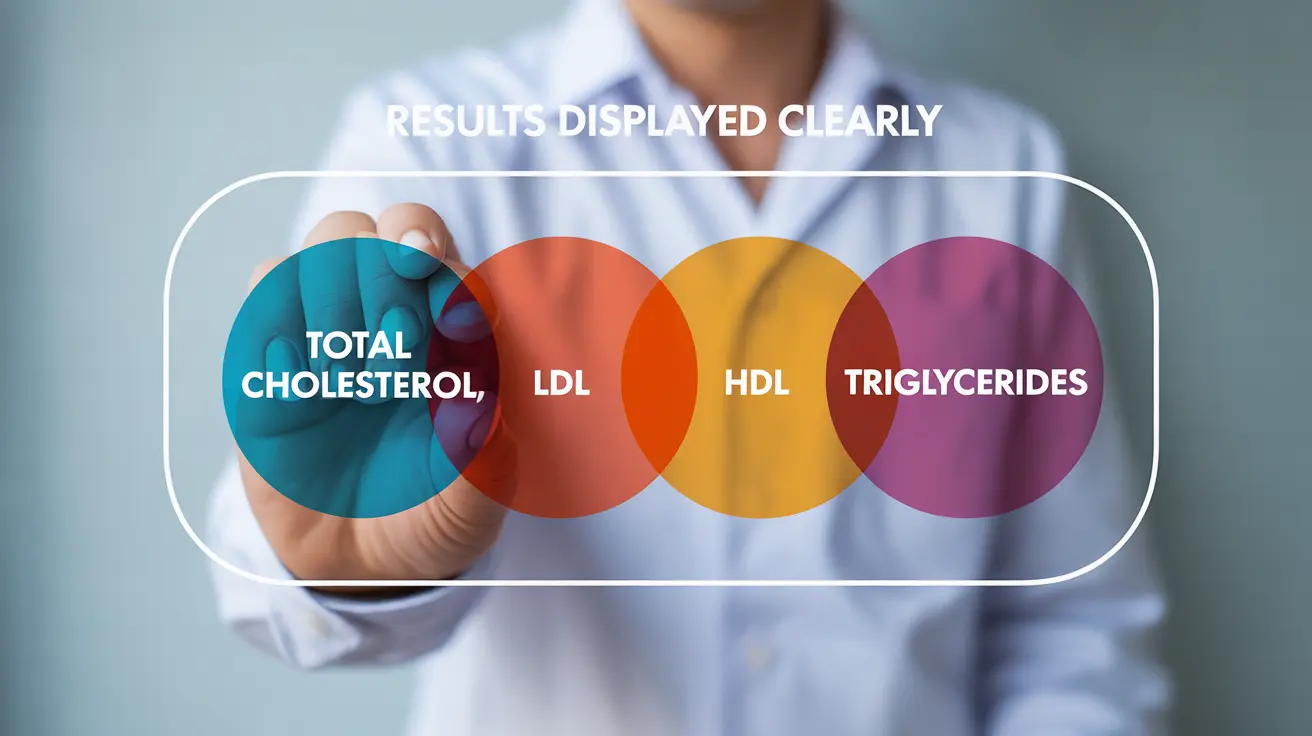A lipid panel is a crucial blood test that provides valuable information about your cardiovascular health. This comprehensive screening measures various types of fats (lipids) in your blood, helping healthcare providers assess your risk for heart disease and other cardiovascular conditions. Understanding what this test measures and how to prepare for it can help you take control of your heart health.
Whether you're getting your first lipid panel or monitoring your cholesterol levels regularly, this guide will explain everything you need to know about this essential health screening.
Components of a Standard Lipid Panel
A standard lipid panel measures four key components in your blood:
- Total Cholesterol
- LDL (Low-Density Lipoprotein) Cholesterol
- HDL (High-Density Lipoprotein) Cholesterol
- Triglycerides
Each of these components plays a different role in your cardiovascular health, and understanding their levels helps create a complete picture of your heart disease risk.
Preparing for Your Lipid Panel
Proper preparation is essential for accurate lipid panel results. Most healthcare providers recommend:
- Fasting for 9-12 hours before the test
- Drinking only water during the fasting period
- Avoiding alcohol for 24 hours before the test
- Maintaining your regular medication schedule unless advised otherwise
- Informing your healthcare provider about all medications and supplements you take
Understanding Normal Ranges
For adults, these are the generally accepted healthy ranges for each component:
- Total Cholesterol: Less than 200 mg/dL
- LDL Cholesterol: Less than 100 mg/dL
- HDL Cholesterol: 40 mg/dL or higher for men, 50 mg/dL or higher for women
- Triglycerides: Less than 150 mg/dL
However, your doctor may set different target ranges based on your individual health factors and risk profile.
Frequency of Testing
The recommended frequency for lipid panel testing varies depending on your age, health status, and risk factors. Generally:
- Adults 20 years and older: Every 4-6 years if results are normal
- More frequent testing if you have:
- Heart disease
- Diabetes
- Family history of high cholesterol
- Other cardiovascular risk factors
Improving Your Lipid Panel Results
If your lipid panel results are outside the normal range, several lifestyle modifications can help:
- Adopting a heart-healthy diet rich in:
- Fruits and vegetables
- Whole grains
- Lean proteins
- Healthy fats
- Regular physical activity (at least 150 minutes per week)
- Maintaining a healthy weight
- Quitting smoking
- Limiting alcohol consumption
In some cases, medication may be necessary alongside lifestyle changes to achieve optimal results.
Frequently Asked Questions
What does a standard lipid panel measure and why is it important for heart health?
A standard lipid panel measures total cholesterol, LDL cholesterol, HDL cholesterol, and triglycerides in your blood. This test is crucial for heart health because it helps identify risk factors for cardiovascular disease and allows for early intervention to prevent heart problems.
How should I prepare for a lipid panel blood test to get accurate results?
To ensure accurate results, fast for 9-12 hours before the test, drinking only water. Avoid alcohol for 24 hours before testing, and continue your regular medications unless directed otherwise by your healthcare provider.
What are the normal reference ranges for total cholesterol, LDL, HDL, and triglycerides in a lipid panel?
Normal ranges are: total cholesterol below 200 mg/dL, LDL below 100 mg/dL, HDL above 40 mg/dL for men and 50 mg/dL for women, and triglycerides below 150 mg/dL. Your doctor may adjust these targets based on your individual health factors.
How often should I get a lipid panel test to monitor my cardiovascular risk?
Adults with normal results should get tested every 4-6 years. Those with heart disease, diabetes, or other risk factors may need more frequent testing as determined by their healthcare provider.
What lifestyle changes or treatments can improve abnormal lipid panel results?
Key lifestyle changes include adopting a heart-healthy diet, regular exercise, maintaining a healthy weight, quitting smoking, and limiting alcohol. Some people may also require medication, such as statins, based on their doctor's recommendation.




